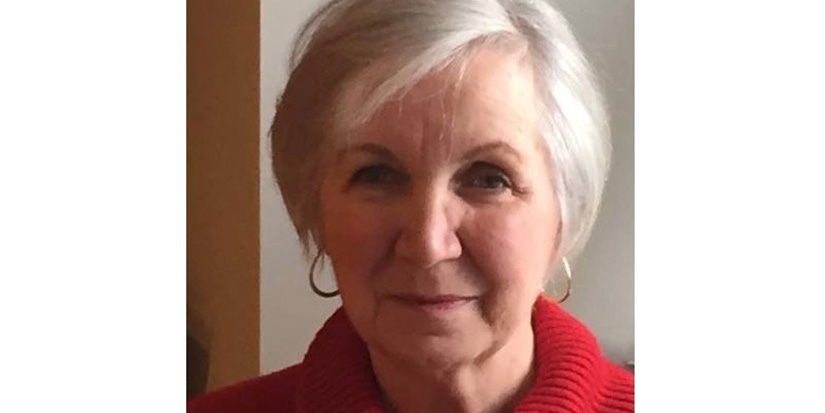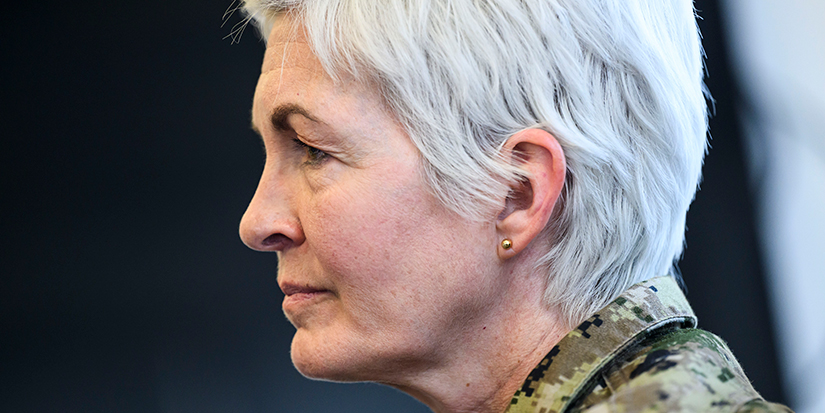Latest News
Steveston woman speaks from the heart
—
Acute heartburn, fatigue and anxiety were increasingly present. Mastering the stairs at home was also becoming increasingly difficult. But Hope Sarfi chocked it all up to the stress of her government job.
Then came a final warning sign.
“I was sitting at my desk and took a Tylenol and heartburn medicine, but it wasn’t working,” explains the now-retired Steveston resident. “Fortunately, when I started perspiring and breathing was a little difficult, I thought ’This doesn’t feel right’ so I had a colleague drive me to the E.R.”
By the time she got to the hospital there was pressure on her chest and breathing was getting even harder. Diagnosed with a 90 per cent blockage of her coronary arteries, she’d suffered a heart attack and required emergency open heart surgery.
This was in 2014.
A year later, Sarfi was well on her way to recovery—and a new lease on life.
In 2016, she was invited to attend—and participate—in the first Canadian Women’s Heart Health Summit in Ottawa. That, she says, “empowered me to take care of my own heart health and gave me inspiration to want to help other women across Canada do the same.”
“When the decisions were made of going national to inform women about heart disease, to conduct more research on women’s heart health, and try to reach all communities across Canada, I became very emotional. I spoke up on how as a patient it moved me that other women would be reached and would know about heart disease to enable to take action on their health and improve their chances of surviving a heart attack.”
Today, Sarfi is leading the promotion of Wear Red, an annual national campaign to further enlighten women about heart disease and the risks factors or heart attack symptoms in women. Mayor Malcolm Brodie has proclaimed Feb. 13 as Wear Red Canada Day in Richmond, joining other cities and communities across Canada to illuminate buildings and structures in red and share photos on social media using the hashtags #HERHEARTMATTERS and #WEARREDCANADA in support of women’s heart health.
When it comes to cardiovascular disease women are under-studied, under-diagnosed, under-treated and under-aware. However, Sarfi says heart disease is largely preventable with 80 per cent of risk coming from risk factors that be modified such as improved nutrition, exercise and reducing stress.
“Women have different symptoms and their hearts and coronary arteries are smaller,” she explains. “And women with no knowledge of symptoms or risk factors delay going to the hospital. I’ve heard and read stories of women having a heart attack and being sent home for indigestion then going back a few days later in an ambulance and if caught in time, surgery required. There are also cases where women were sent home and died. That’s one of the reasons heart disease is described as the number one killer of women.”
The summer prior to her heart attack, Sarfi also had an episode of weakness, shortness of breath and feeling sick during a round of golf. She was taken to hospital by ambulance but the incident was blamed on heart stroke, though she was instructed to take aspirin daily and given nitro pills. Her family doctor at the time also blamed it on being overweight and not exercising and did not follow up with further tests.
Sarfi also continued to practice a new regiment she’s begun at the hospital, including physiotherapy and cardiac rehab at the Ottawa Heart Institute. Using the Canada Food Guide, she also started eating healthier with more vegetables, less meat, no salt and less sugar. With such lifestyle changes that including resuming cross-country skiing, joining a walk program and picking up yoga, she lost 35 pounds.
But while she was feeling great physically, she says there was still something missing.
“For women it is not just physical support that is needed, but emotional support,” she explains. “In 2015, I joined the women@heart peer support program started by the Canadian Women’s Health Centre. Meeting with other women to talk about heart disease, medications and physicians helped me move on psychologically. I was able to accept and say that I have an incurable disease.”
Today, Sarfi tries to walk five kilometres at least three times a week. She also continues to golf and has kept up with her yoga classes, all while keeping an eye on her weight and diet. And she’s not afraid to ask questions about her health.
“From what I know and read, stress, diabetes, obesity, smoking, high cholesterol, hypertension and inactivity all contribute to increased heart risks,” she says. “And busy lifestyles. Talk to your doctor about how you feel. Ask about blood pressure, cholesterol and BMI. Take charge of your life.”































